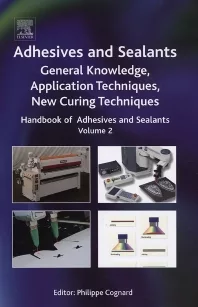HI Sponsors Series of Penn State University Capstone Projects With Members
PARSIPPANY, NJ – The Hydraulic Institute (HI), along with member companies KCF Technologies, Engineered Software, Flowserve and NIDEC, sponsored a series of Penn State University Capstone Projects that challenged college engineering students to field solutions on complex pump engineering projects. According to the university, the mission of Capstone Design Projects is to bring the real world into the classroom by providing engineering students with practical hands-on experience.
Working in collaboration with sponsors, as well as Penn State technicians and the University Area Joint Authority (UAJA), student groups addressed pump system efficiency issues using Internet-based sensor technologies and simulation modeling software. Two student teams sought engineering solutions to one of the biggest challenges in the industrial world: reducing pump inefficiencies that account for up to 20 to 40 percent of wasted electrical energy in both industrial and building services. A third team designed and built a pump test loop that was so well done the sponsoring company intends to continue its use.
Student design teams presented solutions to the Capstone problem-solving projects to sponsors, faculty members, HI staff and facility management at the New Leaf Initiative Building on Penn State University Campus.
“The student design teams presented complex engineering solutions that focused on modeling and analysis of hydraulic systems at State College’s UAJA wastewater treatment facility and pumps within the Earth-Engineering Sciences Machinery Building, using some outstanding engineering work,” notes Jeremy Frank, President and Co-Founder, KCF Technologies.
The Capstone Design Projects included “Efficiency Analysis of a Penn State Motor/Pump System Leading to Design Recommendations to Improve Performance” with co-sponsors NIDEC and KCF Technologies. In this project, students initially identified a motor/pump system located on Penn State campus and collected working drawings to identify component specifications and learn about system operating conditions. Implementing a pump design software tool developed by Engineered Software Inc. called P∙SMART and KCF Technologies’ wireless vibration monitoring kit, the design team then conducted an efficiency analysis of current pump system operations. Students also analyzed live vibration data (via SmartDignostics) related to the motor/pump performance within a regularly scheduled timeframe.
Flowserve sponsored another project, “Design and Fabrication of a Pump Test Loop.” Working to Flowserve’s specifications to design and build a pump loop for future training and testing purposes at its Bethlehem facility, students designed a piping layout, purchased necessary construction materials, assembled the loop, and then operated it using a pump and motor supplied by Flowserve. The team created a final report documenting all design decisions, appropriate drawings, proper instrumentation and assembly instructions.
Jessica Phillips, Engineering Manager, Flowserve Corp., said, “As a fellow engineer, I was impressed how quickly these mechanical engineering students learned to design a solid pump test loop with proper instrumentation using HI standards with excellent results.”
The Penn State Capstone Projects are just the beginning of HI’s endeavor to work with manufacturing members and leading engineering universities and colleges in implementing many diverse Capstone programs related to pump systems optimization. In addition to creating greater awareness of needed pump system efficiency within the pumping industries, these projects will help to recruit qualified mechanical engineering graduates to these industries.
For more information on how to get your company involved, or for Capstone Design Project ideas, contact Mary Silver at 973/267.9700 ext. 117 or msilver@pumps.org.
Looking for a reprint of this article?
From high-res PDFs to custom plaques, order your copy today!




